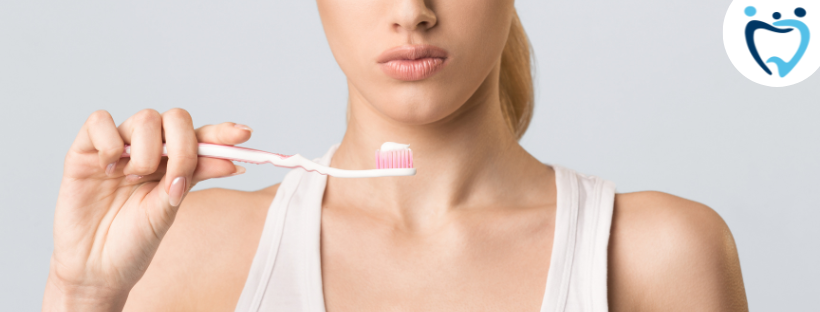
24 Sep When to Get a New Toothbrush
Replacing your toothbrush regularly is key to keeping your teeth and gums healthy. But how often should you actually switch it out? Is it only when the bristles start to fray, or are there other factors to consider? Below are four crucial points on when to get a new toothbrush and why it’s important to maintain this routine.
Replace Every Three to Four Months
According to dental professionals, you should replace your toothbrush every three to four months. Why this specific timeline? Over time, the bristles of your toothbrush wear down from repeated use. Even though they may not look particularly damaged at first glance, their effectiveness decreases as they age. The bristles lose their ability to remove plaque and food particles, meaning your teeth aren’t getting as clean as they should.
Plaque is a sticky film that contains bacteria, and if it’s not removed properly, it can lead to tooth decay and gum disease. So, if you think that a toothbrush can last six months or more, you’re putting your oral health at risk. In fact, a study shows that toothbrushes begin to lose their cleaning power around the three-month mark, and waiting any longer can increase your risk of dental issues.
Additionally, the wear and tear on the bristles isn’t just about appearance. As the bristles degrade, they also become more likely to harbor bacteria and other germs that can lead to illness. This is another reason to stick to a three- to four-month replacement cycle. Plus, let’s face it, a clean and fresh toothbrush feels much better during your daily brushing routine.
Switch After Being Sick
Have you recently battled the flu, a cold, or any other illness? If so, it’s time to change your toothbrush. When you’re sick, your toothbrush can harbor bacteria or viruses even after you recover. This means that using the same toothbrush post-illness can increase your risk of getting sick again. Even if you’re feeling better, it’s important to be cautious, especially if the illness was something like strep throat, the flu, or any other contagious sickness.
Your toothbrush is exposed to bacteria, saliva, and other particles every time you brush, so it’s possible that those germs could still linger even after a thorough rinse. You should replace your toothbrush immediately after recovering from an illness to avoid potential reinfection or spreading germs to others. This is particularly important if your toothbrush is stored near other family members’ brushes.
Some experts even suggest changing your toothbrush more frequently during flu season or when illnesses like COVID-19 or respiratory syncytial virus are circulating at higher rates. If your toothbrush is kept in close proximity to others, such as in a shared toothbrush holder, it’s even more important to make the switch after illness. Viruses can transfer easily, making it a wise choice to be proactive in keeping everyone healthy.
Look Out for Frayed or Worn Bristles
One of the clearest signs that it’s time for a new toothbrush is when the bristles start to fray. This might seem obvious, but many people overlook it. Worn-out bristles are less effective at cleaning your teeth because they can’t reach the nooks and crannies between your teeth and along your gum line. When the bristles become splayed, they lose their stiffness and can no longer effectively remove plaque and food particles.
This issue is not limited to manual toothbrushes. If you use an electric toothbrush, the bristles can wear out even faster due to the rapid movement and extra pressure that electric models apply to your teeth. It’s recommended to change the brush head on an electric toothbrush every three months or even sooner if you notice signs of wear.
What happens if you don’t replace a frayed toothbrush? Over time, plaque will start to accumulate, which can lead to tartar buildup.
Tartar is much harder to remove than plaque, and it often requires professional cleaning by a dentist. Left unchecked, plaque and tartar can lead to tooth decay, cavities, and gum disease. So, if your toothbrush is starting to look a bit worn, it’s time for a new one.
Replace After Eating Staining Foods or Drinks
Another reason to change your toothbrush more frequently is if you regularly consume foods or drinks that stain your teeth. Foods like coffee, red wine, berries, and tomato sauce can leave residue not just on your teeth, but also on your toothbrush. Over time, the bristles can become discolored and less effective at cleaning. This is especially true if you don’t rinse your toothbrush properly after each use.
Stains on the bristles aren’t just cosmetic. They can lead to the buildup of bacteria, which can be harmful to your oral health. The bacteria thrive in the residue left on the bristles, potentially leading to bad breath, tooth decay, or even gum disease. If you’re someone who enjoys a daily cup of coffee or a glass of wine, it might be worth swapping out your toothbrush more frequently to ensure you’re maintaining optimal oral hygiene.
One tip to extend the life of your toothbrush if you consume these staining foods regularly is to rinse your mouth with water immediately after eating or drinking. This can help wash away some of the staining particles before you brush. However, even with good rinsing habits, it’s still a smart idea to change your toothbrush every three to four months, or more often if it becomes visibly discolored.
Conclusion
Maintaining good oral hygiene is about more than just brushing twice a day – it’s also about using the right tools. Your toothbrush is your first line of defense against plaque, bacteria, and other oral health issues. By replacing your toothbrush every three to four months, swapping it out after being sick, and paying attention to wear and tear, you can ensure that your teeth are getting the clean they need. It’s easy to forget how important a fresh toothbrush is, but by keeping an eye on its condition and not letting it go too long without replacement, you’ll keep your smile healthier and brighter for the long haul.
Hiawassee Family Dental is your home for tips and care for oral health. Schedule an appointment today!

About Our Team
Dr. Hargrove and our excellent team here at Hiawassee Family Dental have over 30 years of experience in the field of dentistry. We’re passionate about superior patient care and education.
Contact us to schedule your next appointment!


Sorry, the comment form is closed at this time.